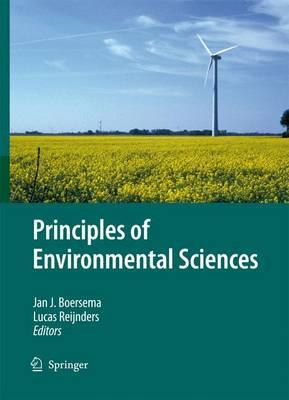Overview
International experts provide a comprehensive picture of the principles, concepts and methods that are applicable to problems originating from the interaction between the living/non-living environment and mankind. Both the analysis of such problems and the way solutions to environmental problems may work in specific societal contexts are addressed. Disciplinary approaches are discussed but there is a focus on multi- and interdisciplinary methods. A large number of practical examples and case studies are presented. There is special emphasis on modelling and integrated assessment. This book is different because it stresses the societal, cultural and historical dimensions of environmental problems. The main objective is to improve the ability to analyse and conceptualise environmental problems in context and to make readers aware of the value and scope of different methods. Ideal as a course text for students, this book will also be of interest to researchers and consultants in the environmental sciences.
Full Product Details
Author: Jan J. Boersema ,
Lucas Reijnders
Publisher: Springer
Imprint: Springer
Edition: 1st ed. Softcover of orig. ed. 2010
Weight: 1.148kg
ISBN: 9789048180820
ISBN 10: 9048180821
Pages: 560
Publication Date: 10 November 2010
Audience:
Professional and scholarly
,
Professional & Vocational
Format: Paperback
Publisher's Status: Active
Availability: Out of stock

The supplier is temporarily out of stock of this item. It will be ordered for you on backorder and shipped when it becomes available.
Reviews
From the reviews: ""Principles of Environmental Sciences is a departure from the typical environmental sciences book because it builds on the foundation of a good environmental sciences course ! . Editors Boersema and Reijnders address several global issues by defining the problem, reviewing methodologies for analysis, and exploring solutions and options. ! This excellent work provides material ! to an environmental sciences course for majors at the upper-undergraduate or graduate level. Summing Up: Highly recommended. Academic audiences, upper-division undergraduates and above."" (D. Ostergren, Choice, Vol. 46 (11), 2009)
From the reviews: Principles of Environmental Sciences is a departure from the typical environmental sciences book because it builds on the foundation of a good environmental sciences course ! . Editors Boersema and Reijnders address several global issues by defining the problem, reviewing methodologies for analysis, and exploring solutions and options. ! This excellent work provides material ! to an environmental sciences course for majors at the upper-undergraduate or graduate level. Summing Up: Highly recommended. Academic audiences, upper-division undergraduates and above. (D. Ostergren, Choice, Vol. 46 (11), 2009)




